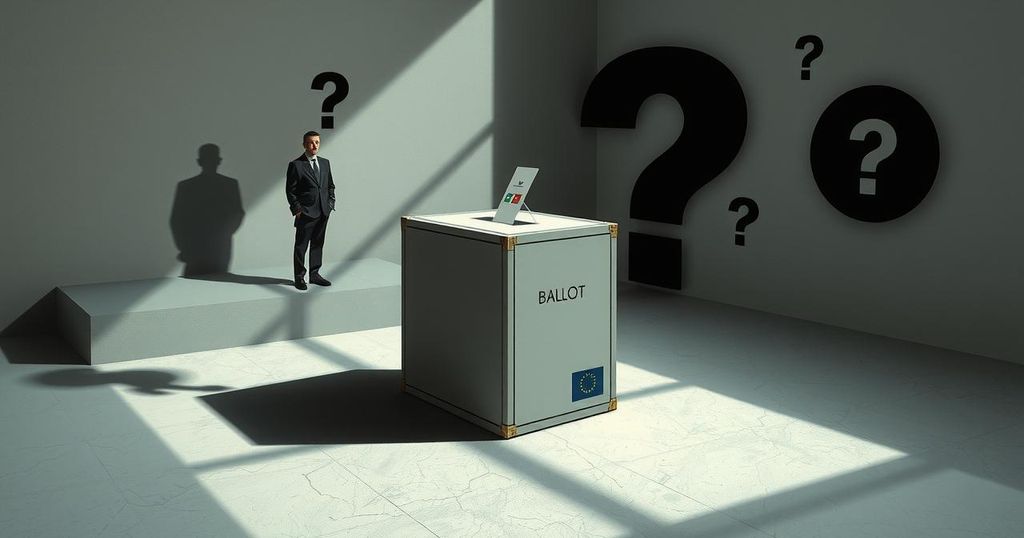Ecuador’s President Challenges Election Results Amidst Claims of Irregularities

Ecuador’s President Daniel Noboa has questioned the integrity of the first round of elections, alleging without evidence that irregularities affected the results. The Organization of American States refuted these claims, affirming consistency with their observation data. Concerns extend as rival candidate Luisa González also raised issues, while security analysts note a troubling trend of governance and rising violence in the country.
Ecuador’s President Daniel Noboa has raised unfounded claims regarding the integrity of the first round of presidential elections, in which he secured a place in the second round with a narrow margin. He alleged numerous “irregularities” in the voting process during a Facebook and YouTube streamed interview, asserting discrepancies in vote counts compared to the Organization of American States’ (OAS) quick count results. Noboa even accused “armed groups” of coercing voters to support his primary opponent, Luisa González.
In response to Noboa’s allegations, the OAS Electoral Observation Mission stated that the official results from the National Electoral Council (CNE) align with their findings, indicating no significant irregularities that could impact the outcome of the election. The European Union’s election observation mission also characterized the election as “transparent, well-organized, and peaceful,” emphasizing the lack of evidence supporting claims of electoral fraud.
Both candidates, Noboa and González, expressed concerns about the election process, with González previously alleging inconsistencies in voting across several provinces. The CNE has reiterated its commitment to ensuring fair and transparent elections amidst these allegations of fraud.
Security analyst Jean Paul Pinto noted that President Noboa has increasingly relied on decrees for governance, which he argues contributes to the erosion of democratic norms in Ecuador. Pinto commented on Noboa’s controversial decisions, such as deploying military forces to combat gang violence, suggesting that the president may perceive governance as akin to corporate management.
The pervasive crime affecting Ecuador has intensified due to conflicts among rival gangs, especially in regions where Noboa’s campaign underperformed. Pinto explained that voter support for González stems not only from her perceived qualities but also from a strong resistance to Noboa’s candidacy. He cautioned that Noboa’s remarks regarding armed groups influencing voting behavior are dangerous, implying Ecuador lacks control over such areas and inadvertently framing the country as a “narco state.”
The allegations of electoral irregularities made by President Noboa and rival candidate González resonate amidst growing concerns over Ecuador’s political climate and security issues. Observers, including the OAS and European Union, refute these claims, asserting confidence in the electoral process. The heightened atmosphere of distrust and violence underscores the challenges facing Ecuador’s democracy and governance.
Original Source: www.wral.com







